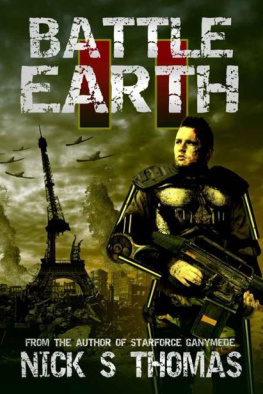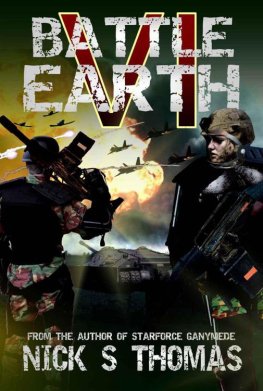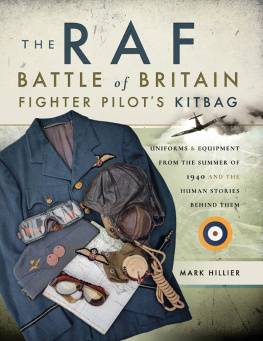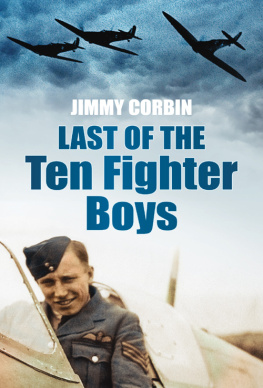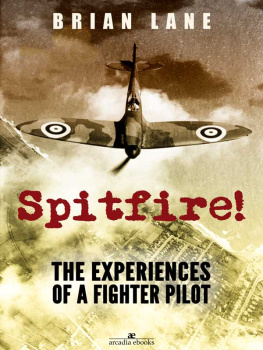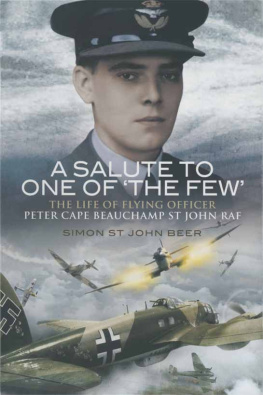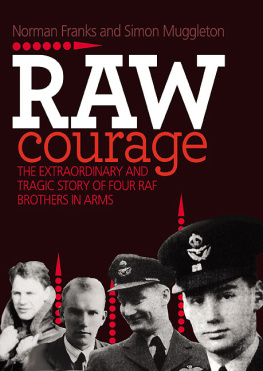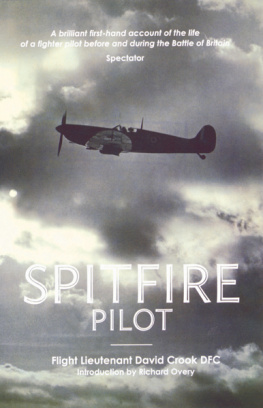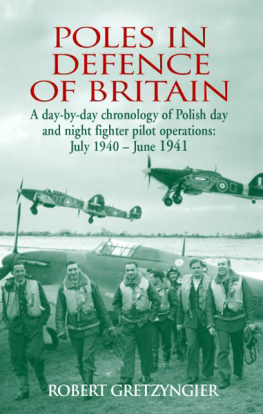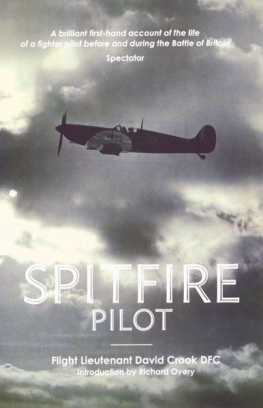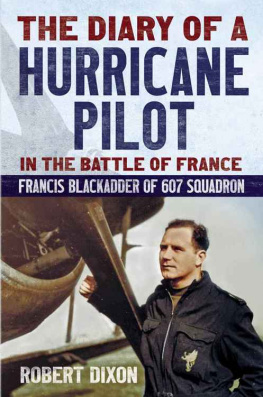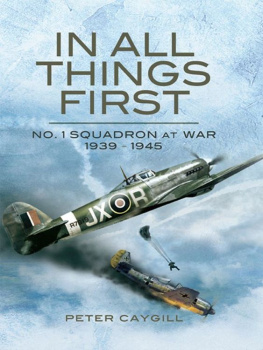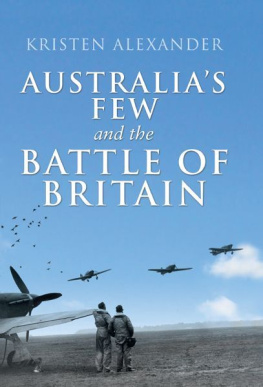First published in Great Britain in 2016 by
Pen & Sword Aviation
an imprint of
Pen & Sword Books Ltd
47 Church Street
Barnsley
South Yorkshire
S70 2AS
Copyright Nick Thomas 2016
ISBN: 978 1 78159 315 8
PDF ISBN: 978 1 47387 451 0
EPUB ISBN: 978 1 47387 450 3
PRC ISBN: 978 1 47387 449 7
The right of Nick Thomas to be identified as the Author of this Work has been asserted by him in accordance with the Copyright, Designs and Patents Act 1988.
A CIP catalogue record for this book is available from the British Library
All rights reserved. No part of this book may be reproduced or transmitted in any form or by any means, electronic or mechanical including photocopying, recording or by any information storage and retrieval system, without permission from the Publisher in writing.
Typeset in Ehrhardt by
Mac Style Ltd, Bridlington, East Yorkshire
Printed and bound in the UK by CPI Group (UK) Ltd,
Croydon, CRO 4YY
Pen & Sword Books Ltd incorporates the imprints of Pen & Sword Archaeology, Atlas, Aviation, Battleground, Discovery, Family History, History, Maritime, Military, Naval, Politics, Railways, Select, Transport, True Crime, and Fiction, Frontline Books, Leo Cooper, Praetorian Press, Seaforth Publishing and Wharncliffe.
For a complete list of Pen & Sword titles please contact
PEN & SWORD BOOKS LIMITED
47 Church Street, Barnsley, South Yorkshire, S70 2AS, England
E-mail:
Website: www.pen-and-sword.co.uk
Introduction
Squadron Leader Reginald Pissy Peacock, DFC, No. 235 Squadron (Blenheim)
Flight Lieutenant Jan Kowalski, VM, KW**, DFC, No. 303 Squadron (Hurricane)
Sergeant Leonard Joey Jowitt, MiD, No. 85 Squadron (Hurricane)
Squadron Leader Ernest George Gil Gilbert, No. 64 Squadron (Spitfire)
Squadron Leader Robert Robbie Reid, AEA, No. 46 Squadron (Hurricane)
Pilot Officer Douglas Cyril Snowy Winter, No. 72 Squadron (Spitfire)
Their Finest Hour tells the fascinating stories of six of Churchills Few, each of whom played an important part in the Battle of Britain. Celebrated and much respected on their own squadrons, all have since been largely forgotten. Their achievements and the fortunes of their comrades-in-arms, many of whom died during the battle, are related in detail, some for the first time.
Squadron Leader Reginald Pissy Peacock, DFC, No. 235 Squadron, was the only Blenheim pilot of the Second World War to become a fighter ace. He was awarded the Distinguished Flying Cross; the first to his squadron. Peacock achieved his combat victories most of them against the enemys top fighter, the Messerschmitt Bf 109 as a flying officer during the spring and summer of 1940. Peacock and his navigator formed a formidable fighting force, the latter leaning out of the cockpit window and signaling with a touch on the shoulder when to out-turn the deadly enemy fighters. Peacocks skill in stalking Bf 109s and his close teamwork with his navigator and air-gunner, led to the almost unique triple gallantry award for the Blenheim crew.
Flight Lieutenant Jan Kowalski, VM, KW**, DFC, No. 303 Squadron, was a pre-war flying instructor in Poland. Jan refused to surrender when his homeland was overrun and escaped to Britain, where he became a member of the Polish Air Force in exile. As a sergeant pilot, Jan flew operationally with No. 303 Squadron, which, in the space of seven weeks, destroyed 126 enemy aircraft for the loss of eight of its brave pilots. Flying alongside such aces as Frantiek, Feric, Urbanowicz, and their British CO, Kellett, Jan Kowalski took part in many of the squadrons combats, earning the Polish War Cross for gallantry. Jan was later awarded the British Distinguished Flying Cross, and the Polish Virturi Militari (5th Class), along with two Bars to the Polish War Cross.
Sergeant Leonard Joey Jowitt, MiD, No. 85 Squadron, was a pre-war airmen who re-mustered as a sergeant pilot. Jowitts squadron was posted to France in September 1939, bearing the brunt of the combat during the Battle of France, destroying sixty-four enemy aircraft, for the loss of seven pilots killed-in-action. Jowitt was able to claim at least one He 111 destroyed and was Mentioned-in- Despatches for gallantry for his part in the campaign (one of less than a handful of gallantry awards made to his squadron during the summer of 1940). As the squadrons original records were destroyed due to enemy action, we will never know the full extent of Jowitts role in the Battle of France, and so No. 85 Squadrons battle is told in full.
Back in the UK and under a new CO, Squadron Leader Peter Townsend, the squadron regrouped ready to defend our shores. Jowitt, as one of the few surviving members of the squadron, was instrumental in training the new pilots, ready for the fight to come. Sadly, he was to be one of the first casualties, dying in the defence of a coastal convoy off Felixstowe on 12 July, the battle only two days old.
Squadron Leader Ernest George Gil Gilbert, No. 64 Squadron. Gil Gilberts unit was one of the last Battle of Britain squadrons to receive theVickers Supermarine Spitfire. He only began his initial training on type in April 1940, while still flying operational patrols on Blenheims. Woefully unprepared for combat, the squadron lost three pilots, including their CO, during a single patrol over Dunkirk. Helping to rebuild the squadron, Gil, then a flight sergeant, flew operationally from May to October, damaging or destroying five enemy aircraft and earning a commission. He was greatly respected by his fellow pilots and frequently led patrols, as the most experienced, if not the most senior ranking, pilot. On one occasion, Gil shot down a Bf 109 which was lining-up on another member of the squadron, only to be hit by the enemys wingman. Somehow, Gil shook off the Bf 109s and nursed his damaged Spitfire back across the Channel, standing in the cockpit to see over the oil-spattered windscreen. Remarkably, he landed without further damage to his aircraft.
Squadron Leader Robert Robbie Reid, AEA, No. 46 Squadron, flew as a pilot officer throughout the Battle of Britain, having a hand in the destruction of three Bf 109s, damaging two more. As a squadron leader, Reid flew rocket-firing Mosquitoes on anti-shipping strikes in the Norwegian fjords during 1944/5. It was while leading one of these mast-height raids during the final weeks of the war that Reid was killed-in-action. Reids story highlights the otherwise largely forgotten role played by No. 46 Squadron, whose battle cost the lives of so many of its eyewitnesses, their combat reports surviving to give testimony to their exploits.
Pilot Officer Douglas Cyril Snowy Winter, No. 72 Squadron, flew Spitfires during the defence of the Dunkirk beaches, before taking on the Luftwaffe in the skies over Southern England. Winters squadron suffered heavy losses during the middle phases of the battle and was pulled out of the line in mid-September, but not before the young fighter ace had become yet another casualty. Had he lived, Winter would undoubtedly have been awarded the Distinguished Flying Cross and been rightly acclaimed as one of the heroes of 1940.
Each pilots story is told through personal accounts, where possible, but also through the pages of their squadrons Operational Record Books (ORB) and combat reports. Occasionally, the extended battle to defend against each raid is narrated through the records of the other squadrons involved, in order to relate the magnitude of the struggle. These provide much background information and help to bring the heroism of these forgotten heroes into sharp focus.


